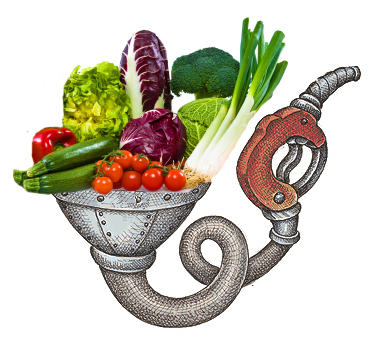Why Mitochondria are Mighty Important
Disclaimer: This article is for educational purposes only and includes the opinion of the author. Information is not meant to diagnose, treat, or cure any illness or disease. It is simply information found through experience and research. Always follow the directives of a medical professional. Neither Anita Bastian or the publisher of the information takes any responsibility for actions readers take in regards to how they use or perceive the information. Readers are encouraged to do their own research.
Those who know me, know that I love to read and learn (since I have been integrated😉). One of my very favorite topics to study and research is – mitochondria. Since I am one who likes to dig deep to discover the underlying causes to our problems this is definitely within that lane. So, today I thought I would share a little “sciency” mitochondrial information with you.
First, why I think mitochondria are so important… they are considered the powerhouse of our cells (1) and they play a lead role in our immune system. When mitochondria are working well, then we are more able to manage immune challenges, physically perform better, and have greater cognitive function. (2,3) They upregulate our ability to battle toxins, infections, and invaders. Then mitochondria help our bodies return to a state of homeostasis. Yay! Thank you, mitochondria!
In case you didn’t get to learn about these little jewels in science class. I will share the basics that I think would be helpful for you to know. Mitochondria are within nearly all of our cells – except red blood cells. They are tiny little rod or cylinder shape organelles inside the cell. In a way they are a digestive system for our cells (1). Digesting nutrients and creating molecules that our body can use to power its many physical activities. We can think of them as little power converter stations. They convert nutrients into usable energy for our body. Or we can think of it as turning food into fuel for our body’s many functions.
I think the following image from Dr. Jay Davidson helps show some of the vitally important roles that our magnificent mitochondria perform for us. (4, 5)
When you look at the 5 roles of mitochondria mentioned here you can see just how important and amazing these little guys are. Given how important they are to our overall ability to function and perform optimally, I wanted to learn what I could do to help promote their function by making beneficial lifestyle choices.
What I found out is that mitochondrial function is supported when processed foods, sugar, and bad fats (hydrogenated or highly processed oil products) are avoided. Instead, focus on enjoying real foods created in nature to nourish my cells. (6) Removing toxins that have built up in our system and downregulated our mitochondria is also vital to helping the body be able feel better and perform better.
Avoiding harmful foods and safely removing toxins is more important than you might think. The outer layer of our cells and the outer membrane of our mitochondria are made of lipids (fats). Bad fats and other toxins inflame the cell membranes causing toxins to become trapped inside the cells and preventing nutrients from getting in. Yikes! Remember, the mitochondria are inside the cells and need to be able to take in nutrients to produce the precious energy we need to function optimally.
You may have noticed in Dr. Davidson’s slide image above, it says, “Mitochondria play a vital role in converting food energy into energy for biological processes.” Food energy comes from all the beautiful whole foods God created for us to enjoy. Processed sugar is not a whole food. It is highly processed, neurotoxic, and can be addictive. (7) Yes, addiction to sugar is a real thing. That is a topic for another time.
The energy produced by our mitochondria is called ATP or adenosine triphosphate. Energy in the form of ATP is used to power the biological process of the body. When our mitochondrial function is impaired our production of ATP is decreased. This leaves us feeling tired and more susceptible to struggling with immune challenges.
So, one of the reasons I geek out over mitochondria is that they are critical to our health. I realized there is so much more to learn. Scientists continue to make new discoveries every day. We are so fearfully and wonderfully made. We may never fully understand all the inner-workings of our bodies, but I do hope you can see how vitally important supporting your mitochondrial function is.
I used to experience extreme fatigue – my mitochondria were struggling and stuck in battle mode against a number of toxins that I was exposed to. Safely increasing my ability to produce energy and decrease my toxin load was key in reclaiming my energy and my health.
If you’re concerned about your ability to produce energy, do not delay in dealing with it. Always seek your medical doctor’s guidance. Keep educating yourself so you can make informed decisions for yourself and keep your mighty mitochondria working for you!
Connect with me for more information.
Blessings!
References:
1. ”Mitochondria – Turning on the Powerhouse.” Rader’s Biology4Kids, Andrew Rader Studios, n.d.
2. Zimmer, Katarina. “Mitochondria Play an Unexpected Role in Killing Bacteria.” The Scientist, 1 Jan 2019.
3. Sandhir, R et al. “Mitochondria as a Centrally Positioned Hub in the Innate Immune Response.” Biochimica et Biophysica Acta (BBA) – Molecular Basis of Disease, vol. 1863, issue 5, May 2017.
4. Davidson, Dr. Jay. “Mitochondria: Cell Powerhouses That Play a Vital Role in Immune Function.” Chronic Illness. Health Blog. 04 Nov 2019.
5. Macdonald, Anna. “5 Roles Mitochondria Play in Cells.” Immunity & Microbiology from Technology Networks, 6 Jun 2017
6. Lipman, Dr. Frank. “9 Ways to Boost Your Mitochondria, Increase Energy and Enhance Longevity.” Health & Wellness. 22 Apr 2019.
7. Murray, Krystina. “Why is Sugar Addiction a Problem?” Addiction Center. 17 Sept 2020. weblink



